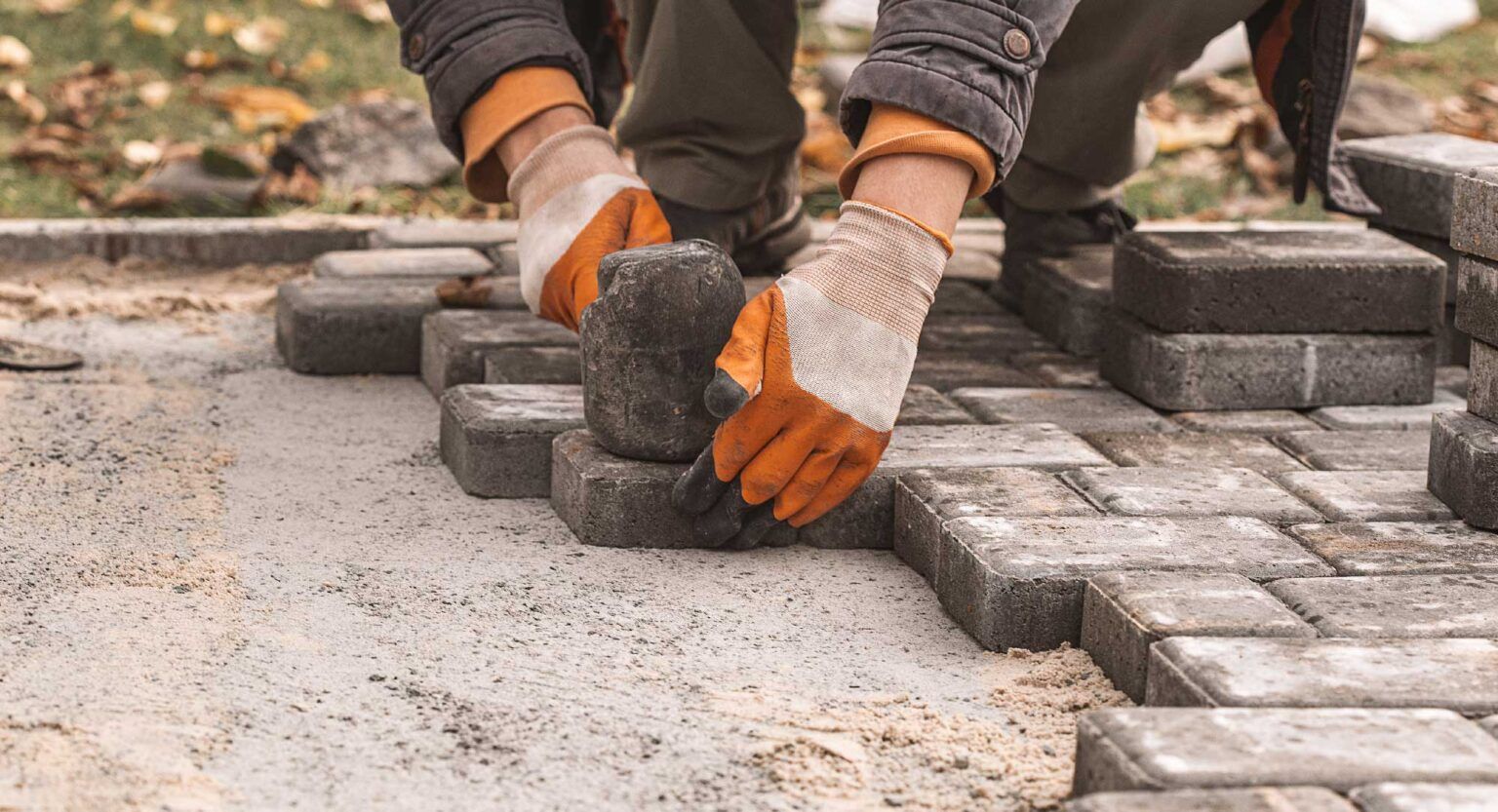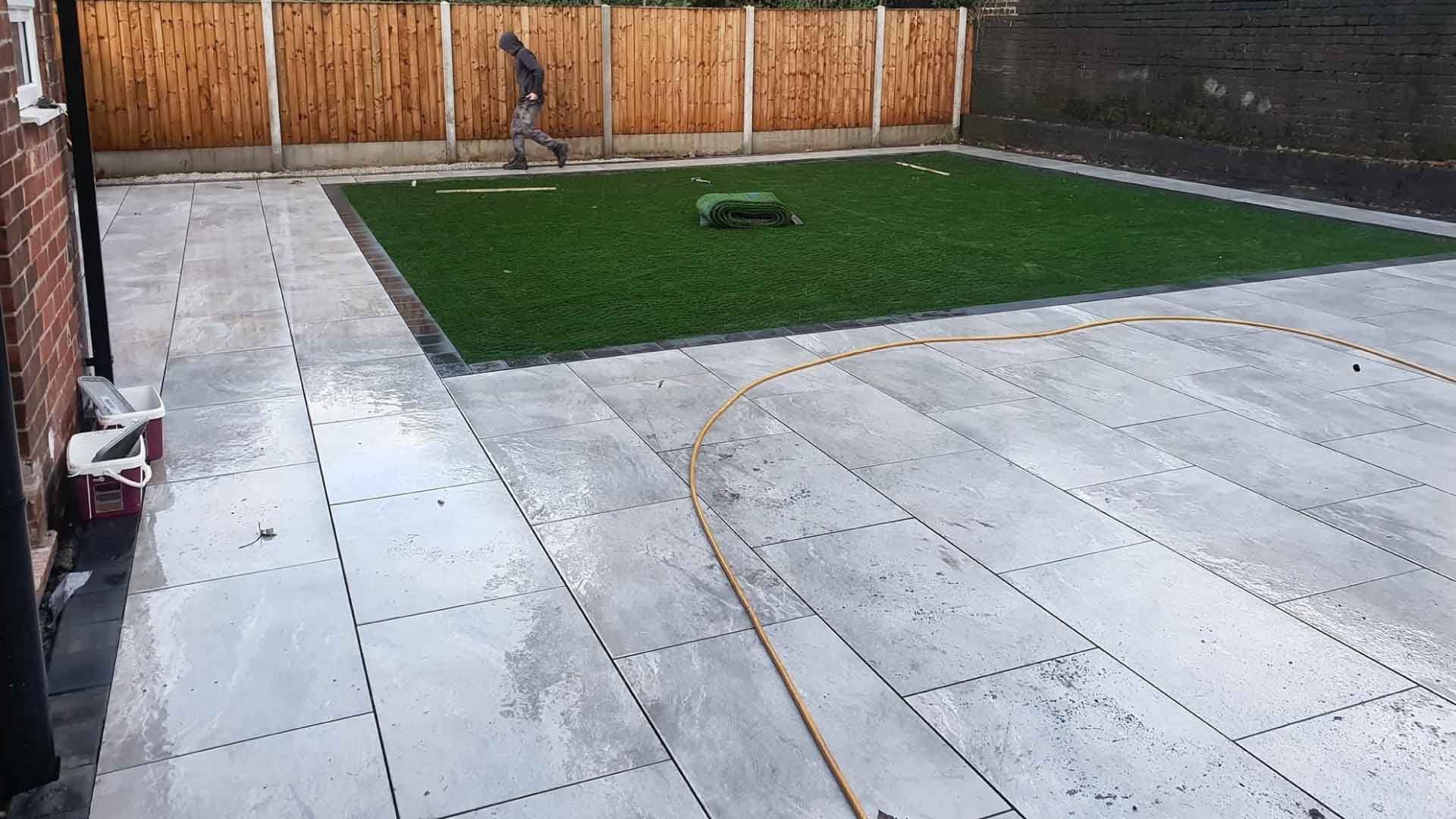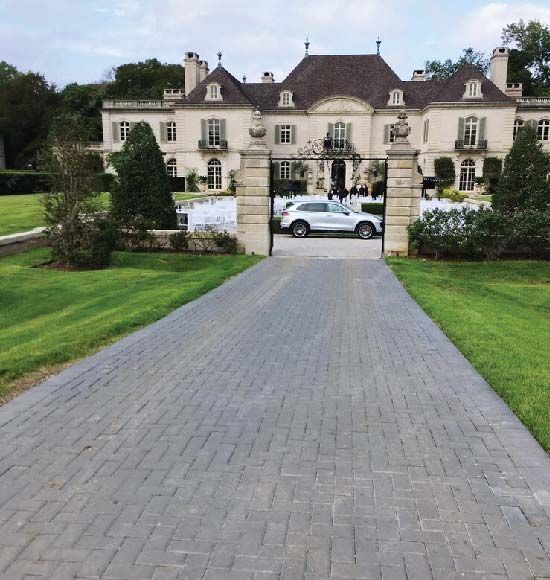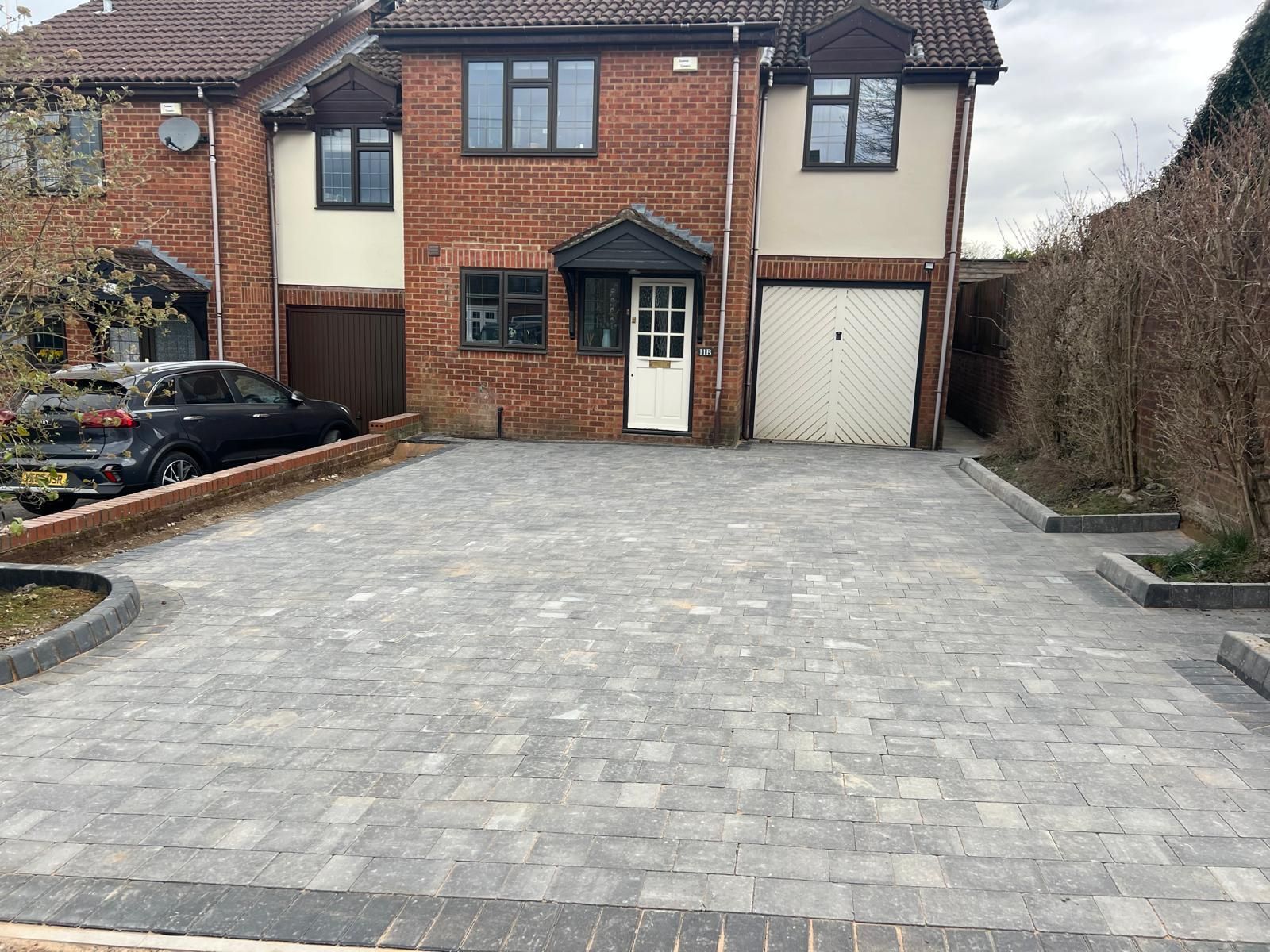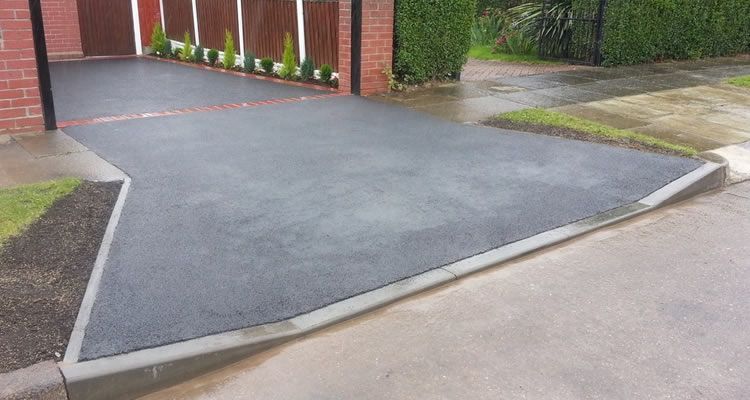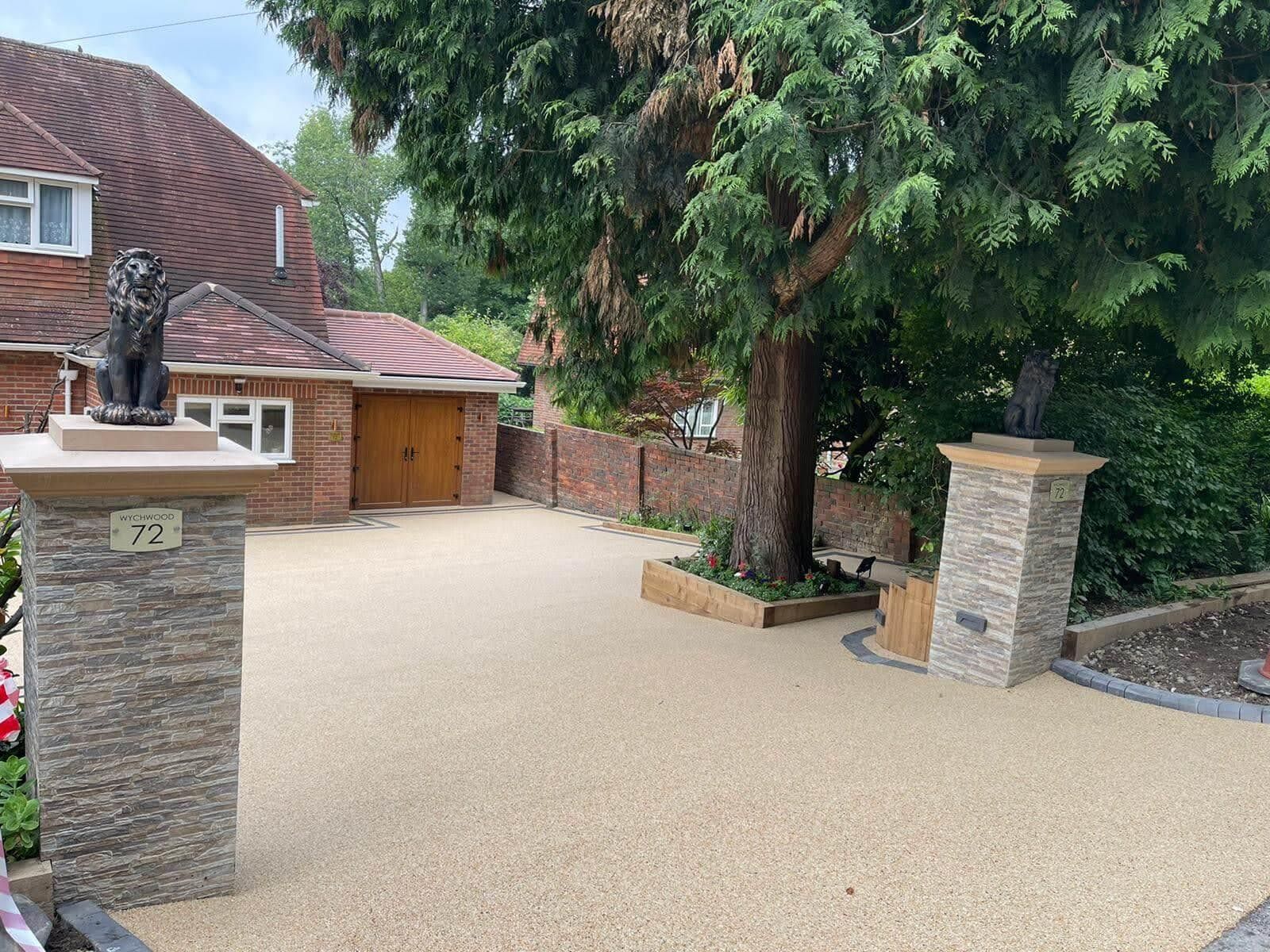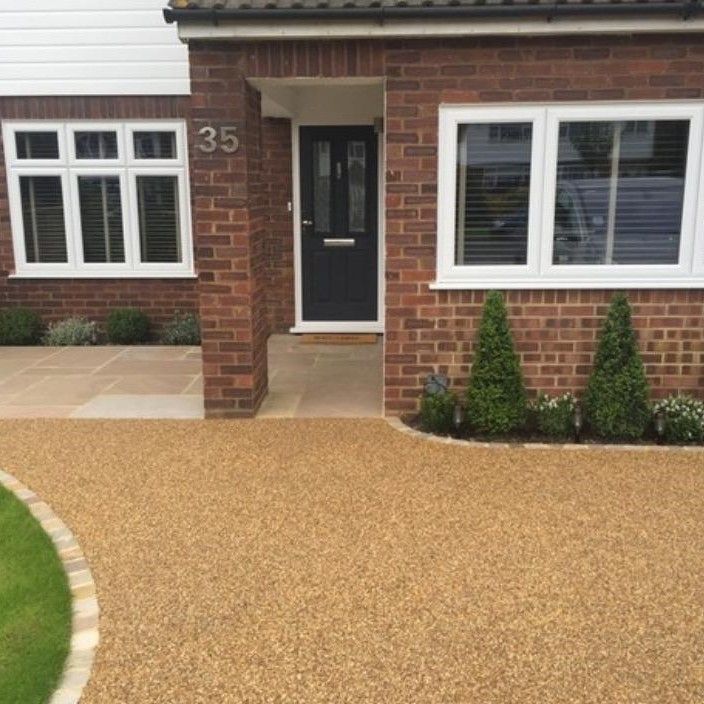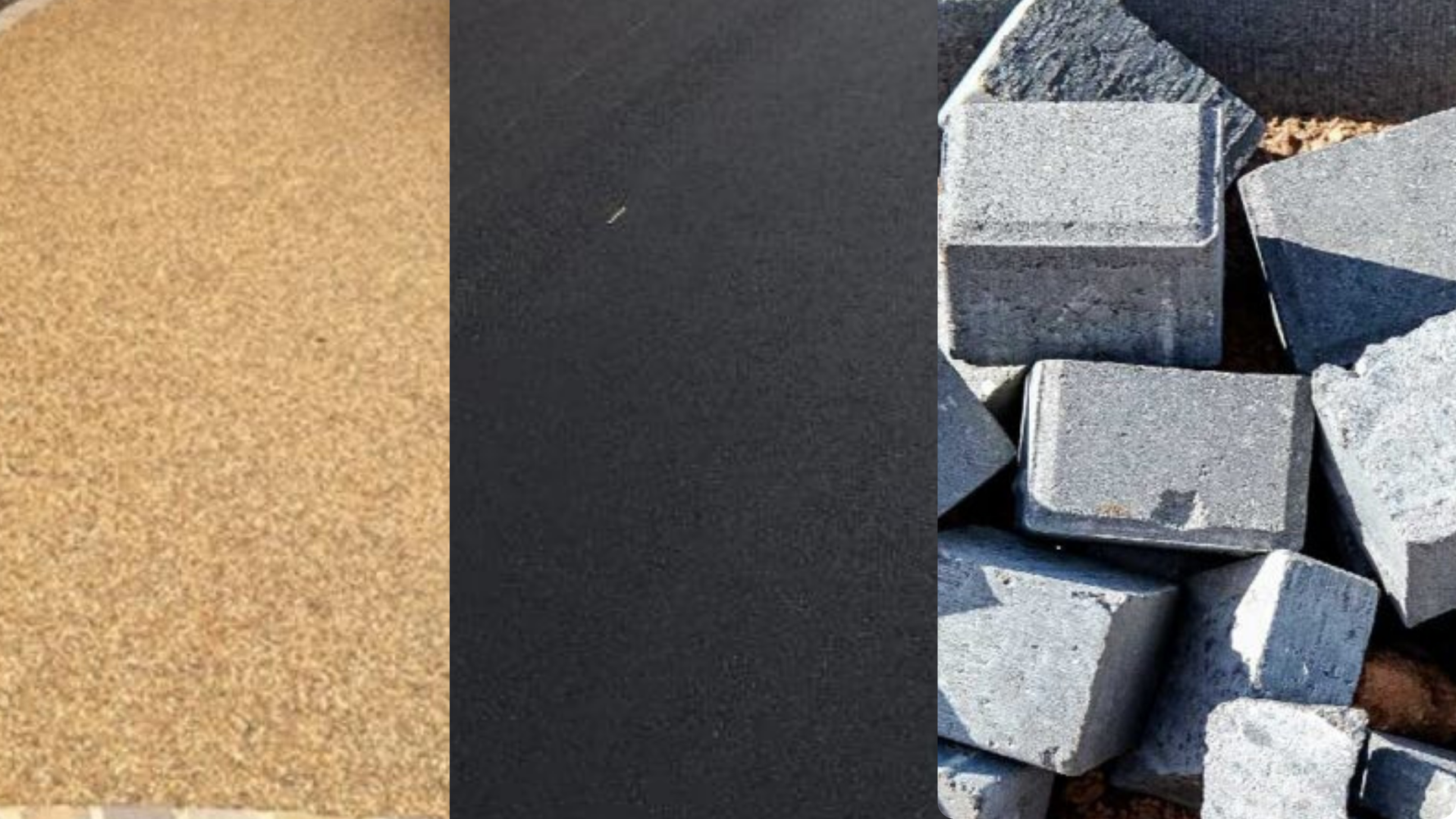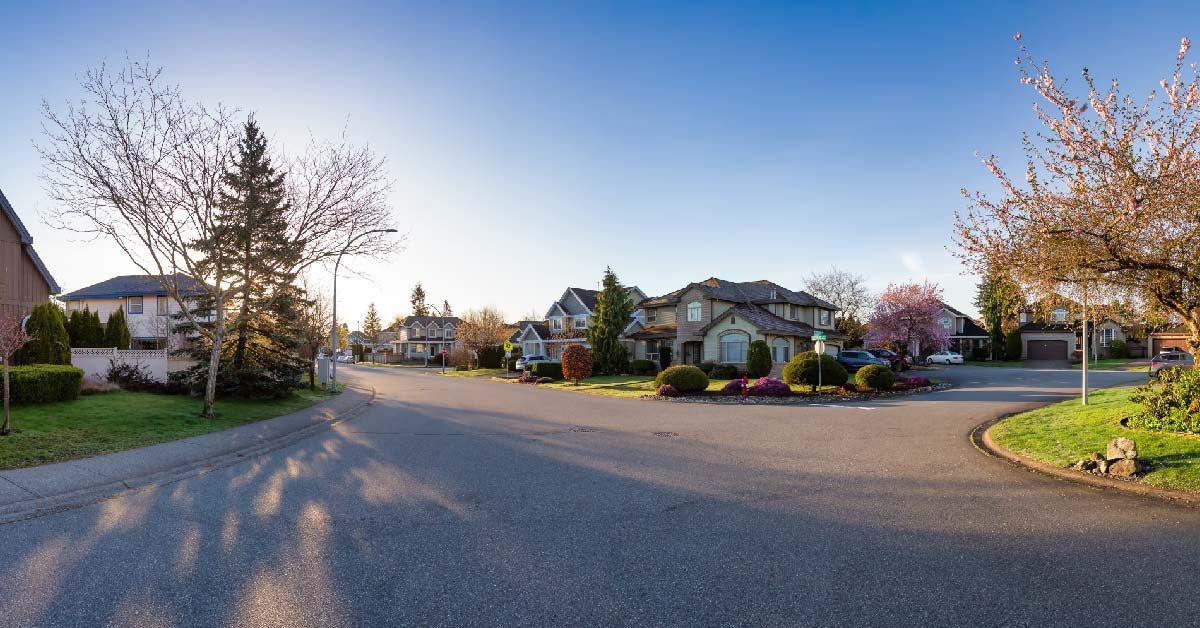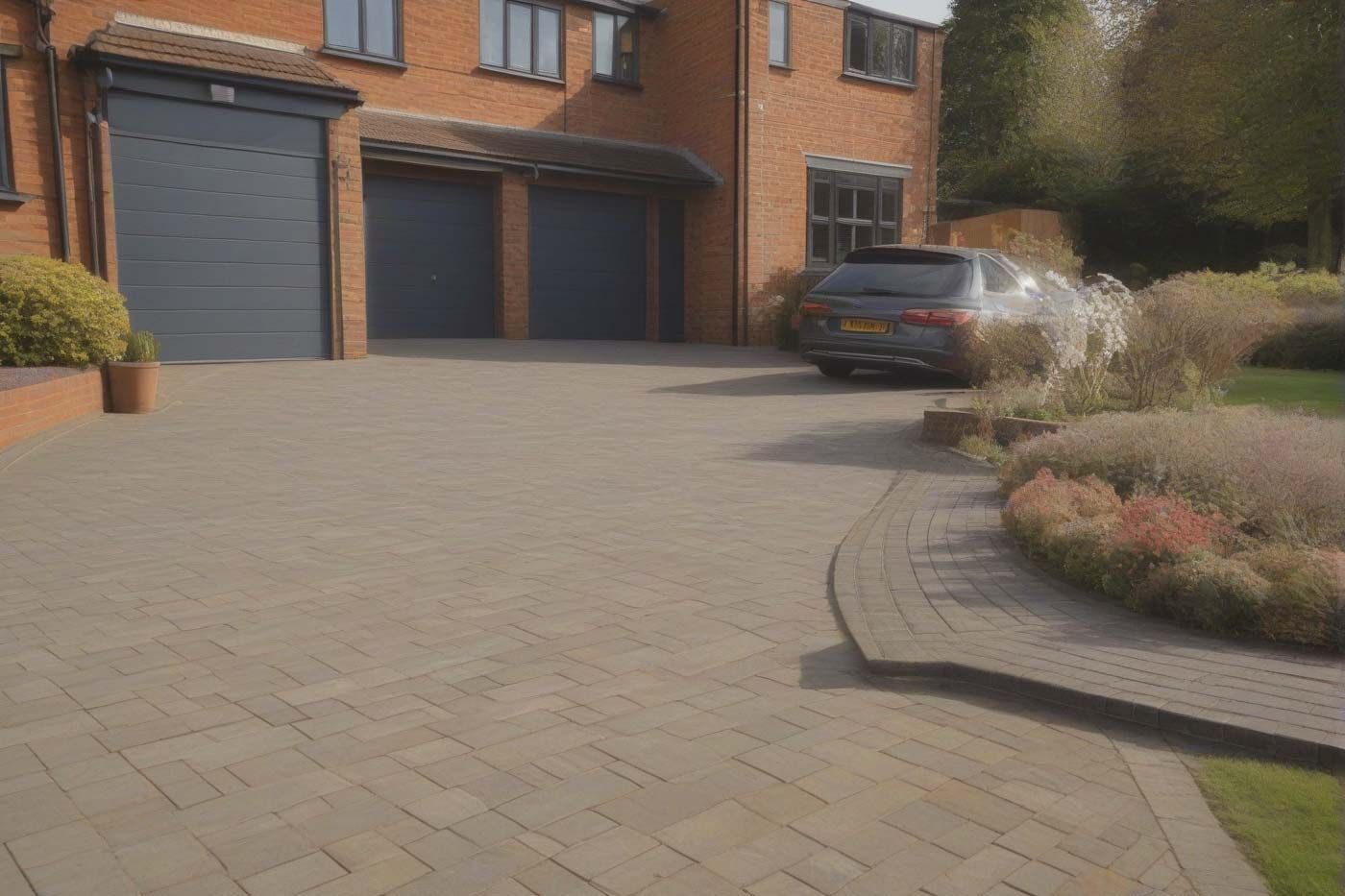How to Protect Your Driveway from Heat Damage in Summer: A High Wycombe Guide
When the British summer gets into full swing—and yes, it happens more often than we might think!—surfaces like driveways can suffer from unexpected heat-related damage. Prolonged sun exposure, high temperatures, and dry spells can deteriorate block paving, resin driveways, and even traditional tarmac over time.
As a respected driveway contractor in High Wycombe with over 25 years of experience installing and maintaining driveways, P&M Kelly Block Paving knows firsthand how the warmer months can impact the longevity and performance of your paved surfaces.
Whether you're planning a new installation for your Buckinghamshire home or looking to preserve an existing surface, this blog explains how to protect your driveway from heat damage during the warmer months—enhancing its kerb appeal and lifespan.
Why Does Summer Heat Damage Driveways in the UK?
Though the UK doesn't typically see the scorching temperatures of some other climates, our summers have become increasingly variable, with more intense heatwaves. The combination of:
- Prolonged UV exposure from the sun.
- Repeated cycles of heating during the day and cooling at night.
- Accumulated pressure from parked vehicles on softened surfaces.
- Lack of surface maintenance can result in cracks, colour fading, surface warping, and crumbling edges.
These issues affect various types of driveways differently. For instance:
- Block paving: Joints can become loose as the bedding sand dries and shifts, or weeds can take hold more easily.
- Resin driveways: May soften slightly or, if not properly UV-stabilised, could discolour under prolonged direct sunlight.
- Tarmac surfaces: Can become sticky, scuff more easily, or develop ruts where vehicle tyres sit repeatedly in high heat.
So, what can you do to prevent this? Here’s how to keep your
High Wycombe driveway in top form all summer long.
How to Protect Your Driveway from Heat Damage
- Choose Heat-Resistant and Appropriate Materials
The best protection starts with the initial installation. If you’re considering a new driveway, selecting the right materials can significantly reduce the risk of heat damage.
- UV-Stabilised Resin Driveways: Opt for a high-quality resin-bound surface specifically designed for UK conditions. Good quality resins resist softening and colour fading effectively.
- Lighter-Coloured Block Paving: Light-coloured pavers reflect more solar heat than darker ones, helping to keep the surface temperature lower.
- Polymer-Modified Tarmac: While traditional tarmac is susceptible to heat, modern polymer-modified binders improve its flexibility and resistance to softening in higher temperatures.
At P&M Kelly Block Paving, we source premium materials from reputable suppliers, suited to the local climate across
High Wycombe and the surrounding Buckinghamshire areas, ensuring your surface is fit for purpose year-round.
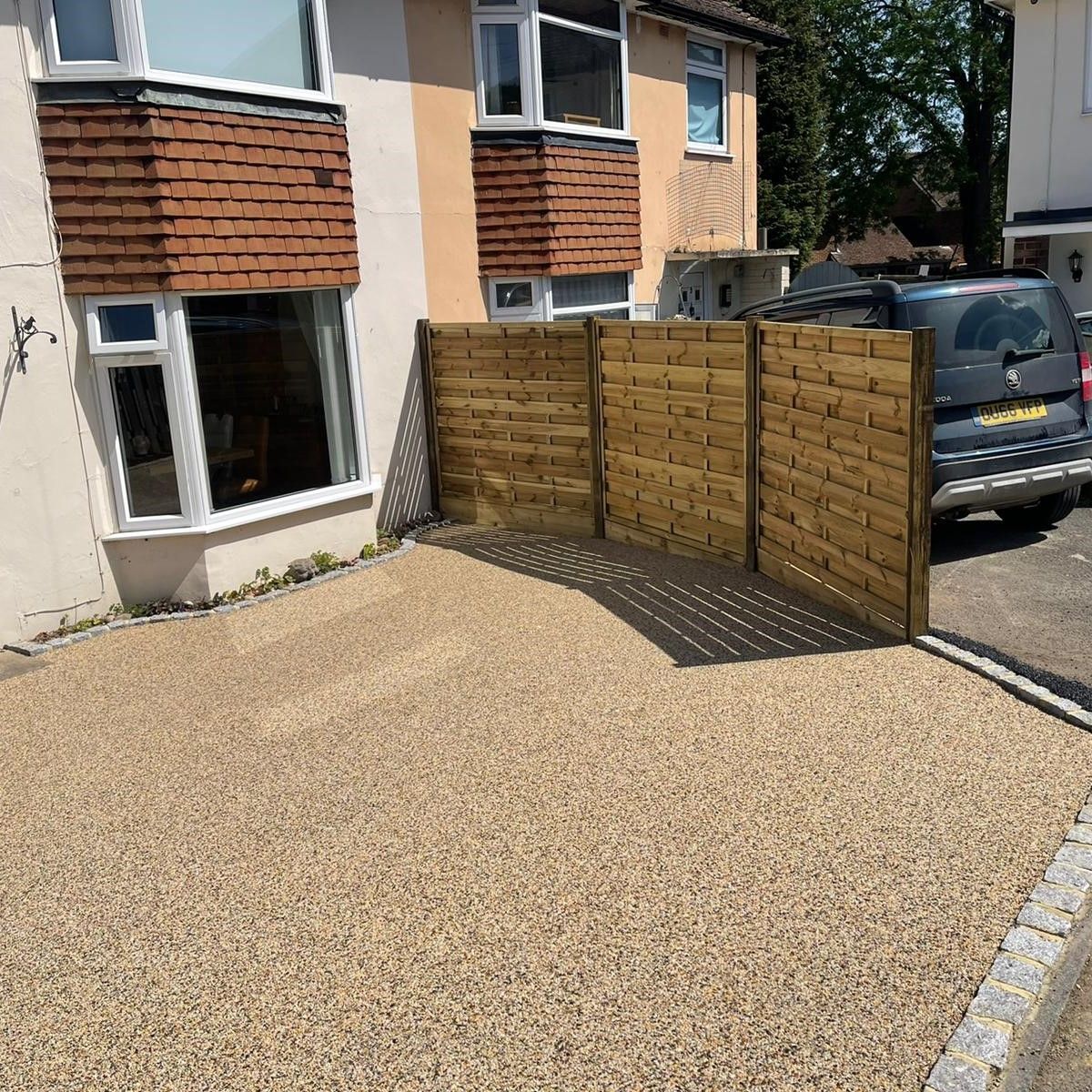
2. Apply Sealants for Added Protection
Driveway sealing provides a protective layer that acts as a barrier against UV rays, water ingress, and stains. For example:
- Block paving sealant: Helps to stabilise jointing sand, prevent weed growth, and reduce colour fade.
- Tarmac sealant/restorer: Can rejuvenate the colour of older tarmac and provide a protective layer, slowing down softening during temperature spikes.
- Resin driveways: High-quality installations usually have built-in UV protection. Some types may benefit from a top-up sealant after many years to boost longevity and appearance.
Professional sealing also enhances the driveway's appearance and helps prevent oil stains from cars, which can be more prevalent in summer.
3. Maintain Proper Drainage and Solid Edges
Hot, dry spells can cause the ground beneath your driveway to shrink and shift. This movement places extra stress on the surface structure, especially at the edges. A poorly drained area or an unsupported edge can begin to sag or collapse.
- Ensure all driveways, especially block paving, have robust edge restraints (kerbs or concrete edging) installed correctly.
- Keep any soakaways and drainage channels clear to prevent water pooling or saturation after summer storms, which can undermine the driveway structure when followed by heat.
- Check for signs of subsidence or movement, particularly on older or steeply sloped driveways, or those laid without adequate sub-base preparation.
Our team of experienced
groundworks contractors can assess your existing drainage and provide solutions, such as installing new edge kerbs, channel drains, and ensuring a proper sub-base during new projects or resurfacing work.
4. Clean Your Driveway Regularly
While it may sound basic, regular cleaning plays a significant role in protecting your driveway during hot weather.
- Accumulated dust, dirt, and debris absorb more heat and can accelerate surface wear.
- Organic growth such as moss and algae can retain moisture. When this moisture is rapidly heated and dried by the sun, it can stress the paving material.
Use a gentle jet wash (on a low setting for block paving to avoid dislodging jointing sand) or a stiff brush to clear the surface of contaminants.
At P&M Kelly, we can offer advice on maintenance to support customers after installations, helping extend the performance of your paving.
5. Park Smart, Especially in Extreme Heat
In periods of extreme heat, tarmac and some types of resin driveways can soften slightly, particularly if they’re newly laid or older.
- If possible, try to vary where you park your car(s) to avoid prolonged pressure in the same spots, which could lead to minor ruts.
- Avoid turning your vehicle's wheels sharply while stationary (known as “dry steering”) as this can scuff or mar softened surfaces.
- Be cautious about parking very heavy items (like skips for long periods) or metal objects that can absorb intense heat and transfer it directly to the driveway surface.
This is particularly important in the first 1–4 weeks after a new driveway is installed, while it’s still fully curing and settling—a detail our paving contractors always inform clients in
High Wycombe about.
6. Perform Routine Checks for Early Signs of Damage
Spotting the early signs of heat-related stress can prevent larger, more expensive repairs down the line. Annually, and especially after prolonged hot or cold spells:
- Look for lifted, cracked, or wobbly paving blocks.
- Observe if resin appears unusually bleached, dull, or has developed fine cracks.
- Check that sand joints in block paving are adequately filled.
- Inspect tarmac for any new tyre imprints, soft patches, or edge fretting.
Our team recommends an annual inspection to assess jointing, borders, surface condition, and drainage.
“Choosing UV-stabilised materials and applying protective sealants are key steps in defending your driveway from summer heat damage in High Wycombe.”
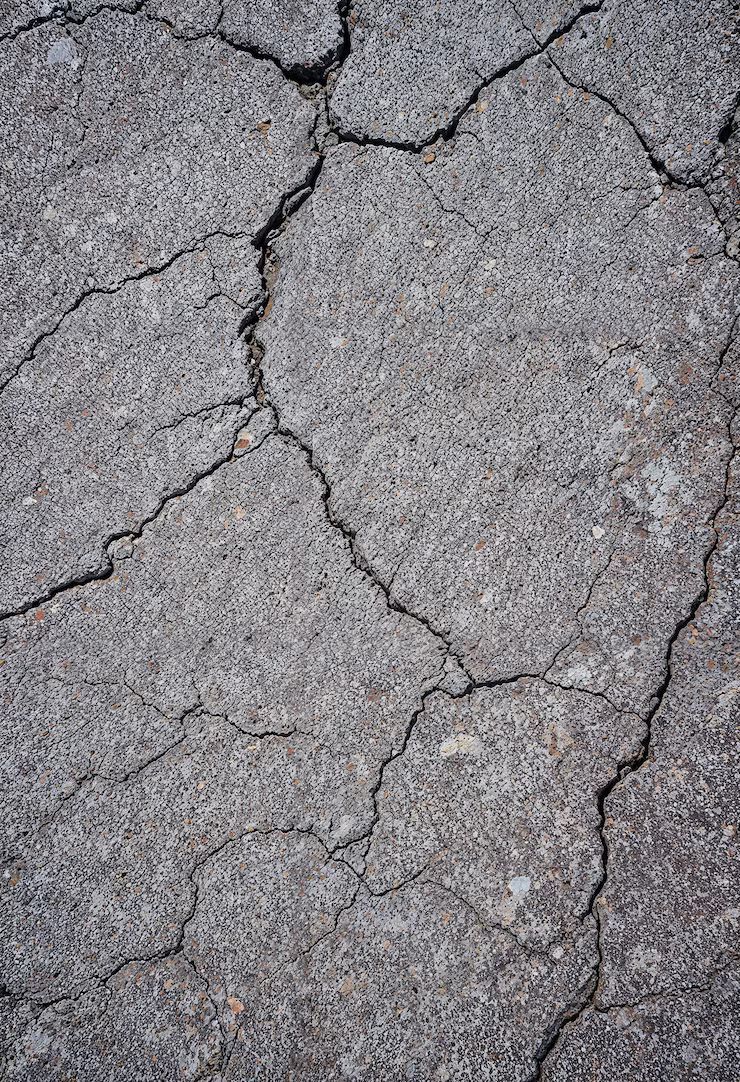
Different Driveway Materials: How They React to Heat
| Driveway Type | Heat Damage Risk | Preventative Measures |
|---|---|---|
| Block Paving | Medium | Re-sealing, ensure jointing sand is topped up, robust edge restraints |
| Resin Driveways | Low–Medium (if UV-stable) | Choose high-quality UV-stable resin, clean surface regularly |
| Tarmac | Medium-High (if standard) | Use polymer-modified tarmac, consider sealant, vary parking spots |
| Gravel | Low | Rake regularly to maintain even surface, ensure good edge containment |
Choosing the right materials for your High Wycombe property and ensuring they are installed correctly by experienced professionals is half the battle. Our team can help assess the best surfacing solution based on your specific requirements and site conditions.
Working with a Trusted Driveway Contractor in High Wycombe
At P&M Kelly Block Paving, we’re more than just paving contractors—we’re a long-established, family-run team offering comprehensive groundwork services, compliant dropped kerb installations, and bespoke driveway design throughout Buckinghamshire.
Why choose us for your High Wycombe driveway?
- Over 25 years of local experience in the paving and groundworks industry.
- Fully insured and hold necessary qualifications (e.g., NRSWA for street works).
- Free site visits and detailed, no-obligation quotations.
- Commitment to long-lasting installations using premium, appropriate materials.
Whether you're upgrading to a resin driveway for its summer resilience, need block paving joints re-sanded and sealed, or require a dropped kerb to improve access while managing water flow, our groundworks contractors deliver dependable, high-quality results.
We regularly complete bespoke driveways in High Wycombe, Amersham, Beaconsfield, Marlow, Princes Risborough, and nearby Buckinghamshire areas, providing tailored surface solutions and maintenance recommendations to help homeowners enjoy pristine drives all year round.
The ROI of Protecting Your Driveway Against Summer Heat
Taking proactive steps to protect your driveway from heat damage isn’t just about maintaining appearances—it’s a smart financial move that protects your investment.
- Extended Lifespan: Proper care and the right materials can add 5–10 years or more to your driveway's surface.
- Enhanced Curb Appeal: A clean, well-maintained driveway makes a strong first impression and contributes positively to your property's value.
- Savings on Future Repairs: Addressing minor issues early, like re-sanding joints or sealing a surface, can prevent more expensive resurfacing or re-installation work later.
- Improved Safety: Preventing loose materials, cracks, or sinking reduces potential tripping hazards and risks of tyre damage.
For example, one of our clients in Princes Risborough opted for a UV-stabilised resin driveway with professional drainage and robust kerb edging.
Several years on, including through the notable summer heatwaves of recent years, their driveway still looks freshly installed and has required minimal upkeep, demonstrating the value of quality materials and installation.
Conclusion: Keep Your High Wycombe Driveway Looking Great This Summer
The British summer isn’t always predictable, but your driveway’s performance and appearance can be with the right approach. With a few preventative measures and the selection of suitable materials, you can significantly reduce the effects of sun, heat, and dry conditions on all types of driveway surfaces.
From installing new groundworks and resilient resin driveways to restoring faded block paving, P&M Kelly Block Paving is your trusted local paving contractor in High Wycombe and across Buckinghamshire.
Let us help protect your investment and enhance your home’s kerb appeal with high-grade materials, professional installation methods, and honest, practical advice.
“With over 25 years of hands-on experience in High Wycombe, we know that proper driveway maintenance during summer can extend surface life by a decade or more.”
Contact us today for a FREE quote or driveway inspection, and beat the summer heat—before it becomes a costly problem.
FAQs
- How often should resin driveways be resealed for summer protection? While most high-quality resin driveways have excellent built-in UV protection, some types might benefit from a specialist top-coat sealant every 3–5 years, or as recommended by the manufacturer, to maintain their pristine appearance and extend their lifespan, especially in very sunny spots.
- Can a driveway be installed during summer in High Wycombe? Yes, summer is generally a good time for driveway installations due to drier weather, which can aid groundwork and curing times. However, professional installation is key, as experienced contractors like P&M Kelly will take precautions for working in higher temperatures to ensure optimal material performance and avoid issues like premature drying or softening.
- Do I need planning permission to redo my driveway in Buckinghamshire? If you are simply resurfacing your existing driveway with similar materials and not altering its size or drainage significantly, you usually don't need planning permission. However, if you're creating a new driveway over 5m², using impermeable materials, and not directing water to a permeable area on your property, or if you are installing/altering a dropped kerb, then planning permission and/or a specific licence (like a Vehicular Access Licence from Buckinghamshire Council for dropped kerbs) will likely be required. P&M Kelly holds the necessary council-required qualifications for dropped kerb installations and can guide you through the application process with Buckinghamshire Council.
- Is block paving better than tarmac for summer durability in the UK? Both have pros and cons. Block paving can be more flexible with temperature changes, and individual blocks can be replaced if damaged. However, jointing sand needs maintenance. Standard tarmac can soften more easily in direct, intense heat if not a polymer-modified type. The best choice depends on your specific site, usage, and aesthetic preference.
